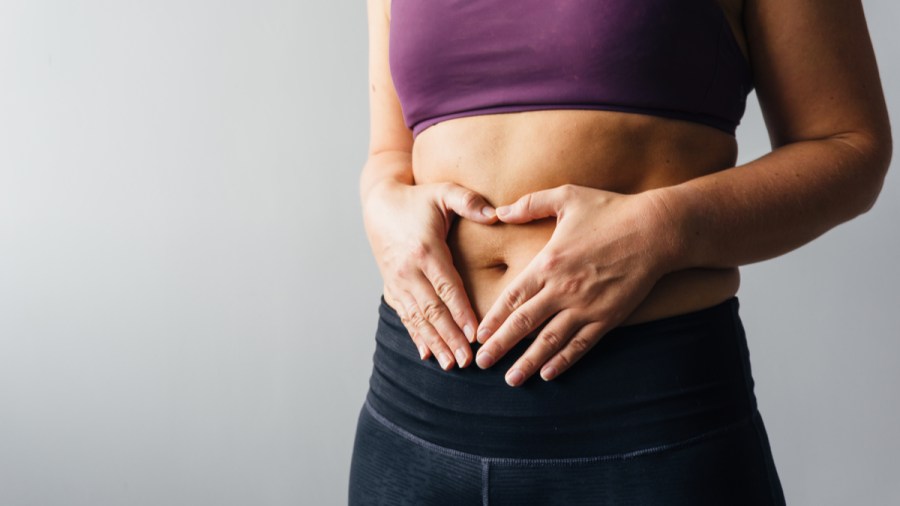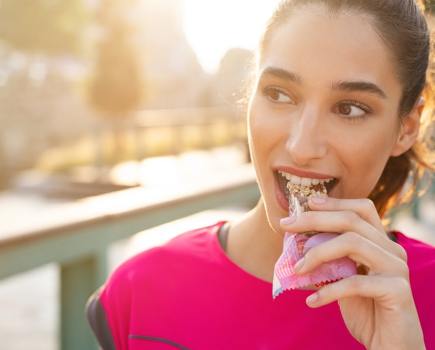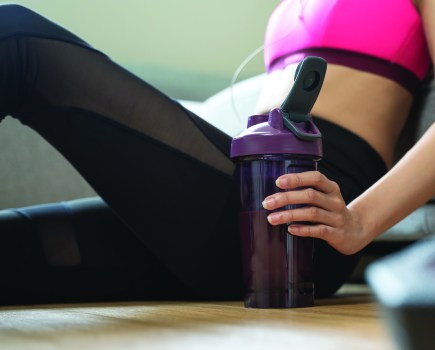
Nutritionist and Author, Christine Bailey
Did you know that exercise can impact your gut health? Christine Bailey, nutritionist, and author of the Gut Health Diet Plan, is here to explain how movement can affect your gut health. She also reveals the best exercises for gut health issues, plus a 7-day nutrition plan to keep your microbiome on track…
It is estimated that around 400 bacterial species and 100 trillion microbes live in our gut. This ecosystem – known as the microbiome – influences our nutrition, metabolic health, immune system and even mental health. Indeed, research has shown that a diverse microbiome is associated with overall better health. But when the microbiome becomes imbalanced, we are more prone to digestive symptoms and other health conditions.
Get moving for gut health
The composition and range of microbes present is influenced by many factors – the food you eat, medications, sleep quality and stress. There is also mounting evidence to suggest that exercise and physical activity can also affect gut microbes. The good news is that exercise can have many positive benefits on gut health. Firstly, staying active is a great way to keep regular. When you exercise, your intestines naturally contract, pushing waste through and reducing the risk of constipation. Even a short workout can be an effective way to get things moving.
Is there any research linking gut health and exercise?
Recent research is revealing how exercise can change the types of microbes in your gut. In a study from the University of Illinois, researchers found that exercising for just six weeks could impact the microbiome. Participants who exercised for 30 to 60 minutes three times a week were found to significantly improve the healthy microbes in their gut. These beneficial bacteria produce short-chain fatty acids which have been shown to reduce inflammation and improve gut health. One of these, called butyrate, is the main source of fuel for cells in the gut lining and helps maintain a healthy gut barrier. It also appears to reduce the risk of inflammatory diseases, type 2 diabetes and heart disease. But to get the benefits you need to exercise regularly. The study found that the gut reverted back to its previous state when the participants went back to a more sedentary lifestyle.
Other studies have discovered that athletes have a more diverse and richer gut microbiome compared to sedentary people. This has been linked to a number of benefits including a healthier immune system and lower inflammation. Fortunately, you don’t have to be an elite athlete to experience benefits. Research indicates that even moderate exercise promotes healthy bacteria, and many of these microbes have been linked to a healthier metabolism and leanness. One study found that women who performed a minimum of three hours of light exercise (such as swimming or brisk walking) per week had increased levels of healthy bacteria linked to better body composition.
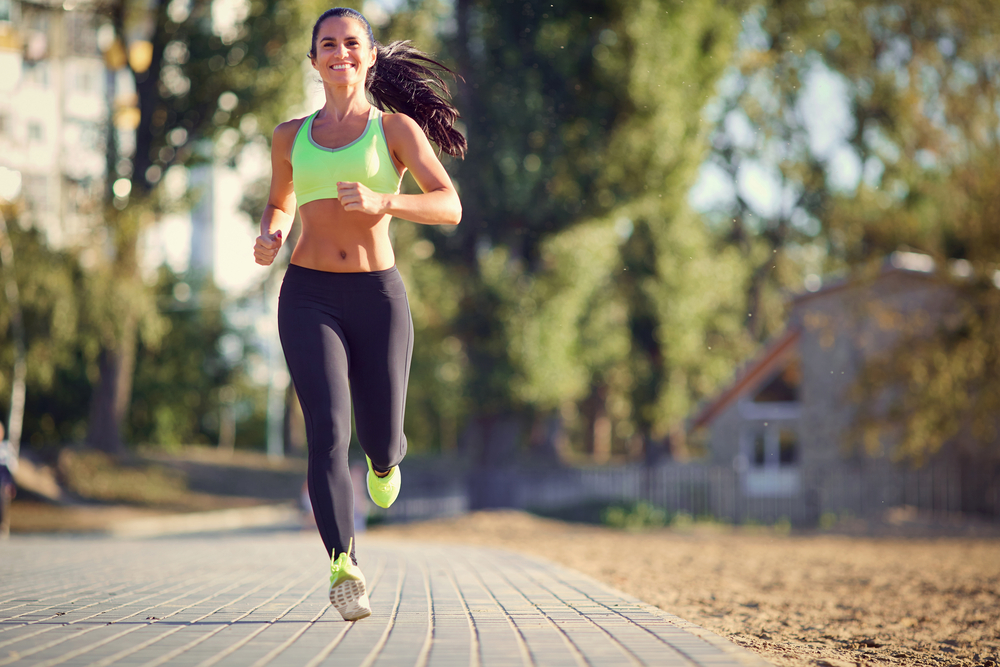
Exercise can have many positive benefits for gut health.
Best exercises for gut health
So, which exercises will improve your digestive health? Any physical exercise is likely to be beneficial for your gut, but the majority of research has focused on the effects of aerobic (or cardiovascular) exercise. Running, cycling, dancing, cardio and gym workouts are all likely to benefit your gut. Choose something you enjoy and your gut bacteria will love you for it.
If exercise is good for your gut, why do many athletes (particularly endurance athletes) struggle with digestive issues? Exercise is a stress on your body and so the intensity and duration of exercise, together with getting the right amount of recovery time, will all play a role in how your gut responds and adapts to train in strenuous exercise (both in intensity and/or duration) has been shown to induce a number of changes that can promote inflammation in the gut, damaging the cells in the intestine, which can lead to digestive issues.
One study found that exercising intensely for more than two hours at a time can contribute to gut problems by compromising the gut barrier integrity and function. This was shown to lead to various harmful substances moving through the injured gastrointestinal wall into the bloodstream and promoting inflammation. Termed ‘exercise-induced gastrointestinal syndrome’, has been found to be more common in endurance athletes such as ultra-marathoners and triathletes.
Nutrition for improved gut health
If you want to improve your digestive health, you need to nourish your gut. Start by adding some probiotic-rich foods to your diet. Probiotics are fermented foods that contain health-promoting microbes. Try yoghurt, kefir, miso, sauerkraut, kimchi or kombucha. For a healthy gut, you also need to include prebiotic foods. Prebiotics are substances found mostly in plant-based foods which provide food for gut microbes. Prebiotic fibres, resistant starches and polyphenols (a type of plant compound) help promote the growth and activity of beneficial bacteria. Top foods include apples, oats, flaxseed, onions, garlic, leeks, leafy greens, asparagus, berries, green tea, dark chocolate, beans and pulses and potatoes.
To keep your gut healthy, steer clear of alcohol and artificial sweeteners which can harm your gut flora. Avoid the temptation to snack constantly. Research suggests that when your gut takes a break from food for 12 or more hours, between last night’s dinner and the next day’s breakfast, it has time to heal and reset.
7-day gut health diet plan
Try our seven-day nutrition plan alongside your workouts to kickstart your gut health this week:
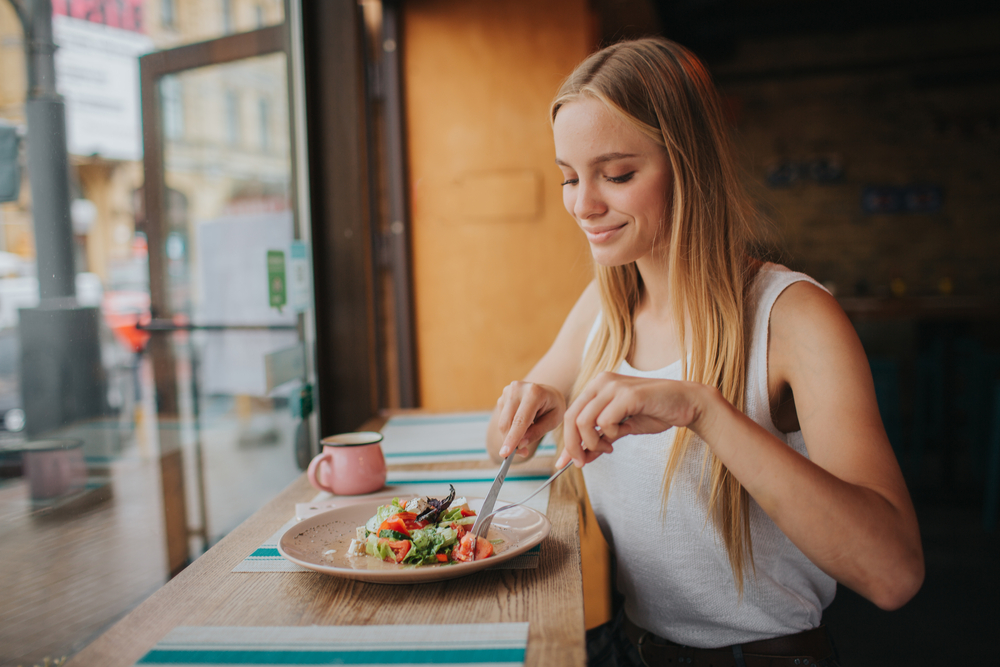
Day 1
Breakfast: 200g Greek or coconut yoghurt with 100g fresh berries.
Lunch: 2-egg omelette with asparagus, oatcakes, mixed salad.
Dinner: Roasted vegetables & chicken – roast a chicken breast with a selection of veggies (e.g. onion, pepper, courgette, new potatoes) in olive oil. Serve with salad.
Snack: Tropical shake – blend a handful of spinach, ½ banana, 100g mango, 2 tsp flaxseed with coconut milk and protein powder.
Day 2
Breakfast: Porridge topped with blueberries, seeds and yoghurt.
Lunch: Kale salad with quinoa – place 100g chopped kale in a bowl with a little salt, lemon juice and ½ avocado. Massage to wilt the kale. Add radishes, tomatoes, olives and 100g cooked protein and quinoa.
Dinner: Garlic roast salmon with greens – marinate a salmon fillet with a little soy sauce, garlic and lemon juice. Grill until cooked. Serve with steamed greens and baked sweet potato.
Snack: Glass of kombucha and a handful of nuts.
Day 3
Breakfast: Berry kefir smoothie – blend 250ml kefir, 150g frozen berries, a scoop of protein powder, 1 tsp nut butter.
Lunch: Large mixed salad with beetroot, carrots and edamame beans with seeded crackers.
Dinner: Spinach dahl – sauté ½ onion, 1 tbsp curry paste and 60g red lentils in olive oil. Add 200ml coconut milk, simmer for 30 minutes until cooked. Stir in spinach and serve with cooked rice and salad.
Snack: Chopped apple and a yoghurt.
Day 4
Breakfast: ½ smashed avocado, smoked salmon, plus rye or sourdough bread.
Lunch: Chicken noodle soup.
Dinner: Bean burgers with sauerkraut, wholegrain roll and mixed salad.
Snack: Hummus with vegetable sticks
Day 5
Breakfast: Soaked oats – soak 35g oats in almond milk with a spoonful of nut butter overnight. Top with raspberries and yoghurt
Lunch: Leftover chicken noodle soup
Dinner: Roasted root vegetables with chickpeas – roast carrots, beetroots, fennel in olive oil and top with chickpeas. Drizzle with yoghurt and serve with salad.
Snack: 2 squares of dark chocolate, handful of strawberries
Day 6
Breakfast: 2-egg omelette with mushrooms and oatcakes
Lunch: Chicken & artichoke salad with yoghurt dressing – mix together a little yoghurt with lemon juice, garlic and herbs for a dressing. Assemble a salad with a bag of salad greens, marinated artichoke hearts, olives, tomatoes and top with protein.
Dinner: Baked sweet potato with chilli beans and steamed vegetables.
Snack: Tropical kefir shake – blend 150g fresh or frozen pineapple, 250ml kefir, plus a spoonful of flaxseed
Day 7
Breakfast: Matcha shake: blend 250mlcoconut water, ½ tsp matcha green tea, 150g berries and a scoop of protein powder
Lunch: Wholegrain pitta with avocado, prawns (or tempeh) and salad
Dinner: Korean bowl – 100g cooked chicken or tofu, kimchi, brown rice and stir-fry vegetables
Snack: Coconut yoghurt and 2 squares of dark chocolate

